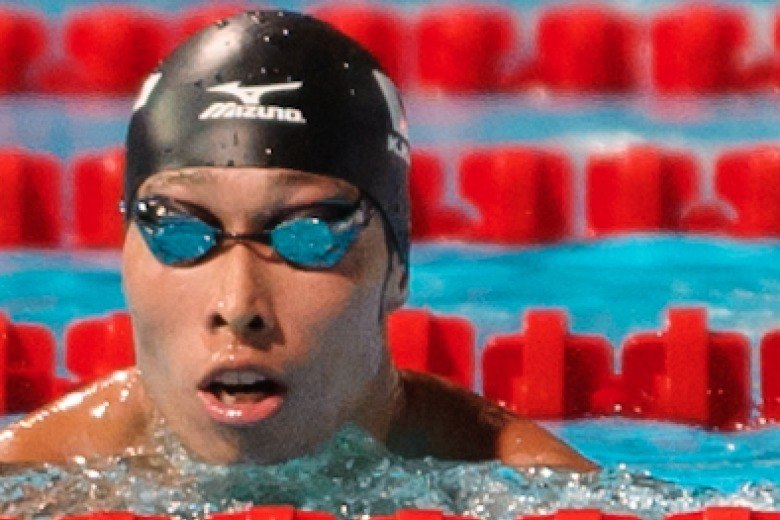Japan’s Kosuke Hagino continued his impressive 2013 run, and despite being on at least his 4th big meet of the year last weekend, the Japanese Student Championships, he continued to stamp his name as Japan’s new superstar (and with a name like Kosuke, it should be a smooth transition from their old star).
Hagino took victories in both the 200 and 400 IM’s, and while neither time was as fast as his swims at the World Championships (where he took silver in the 200 and 5th in the 400), both crushed Meet Records. First, he was a 1:56.64 in the 200 IM, which he followed with a 4:11.23 in the 400 IM. Those swims both knocked about three seconds off of the old records.
These swims were especially good, considering that Hagino has been more of a peak-and-taper type of swimmer than a lot of the Japanese stars we’ve seen in the past.
Hagino’s breaststroke look particularly good in these two swims; it’s not clear if that was a choice of pacing, or if it’s something he’s been working on in practice, but that breaststroke is the only thing keeping him from being the world’s best IM’er. If he can consistently split 33-low or sub 1:10 in his IM’s, he’s a contender for gold every year. This is the transition that both Ryan Lochte and Michael Phelps had to make, and did so very well, and that’s why they’re the two best.
Hagino almost broke one other Meet Records as well: he led off the 800 free relay in a 1:47.01, just missing the record by .05. His 53.6 that led off the 400 medley would’ve easily won that event too, but with a compressed three-day format, he chose to focus on his primary IM events.
Meanwhile, Shinri Shioura won both the 50 and 100 freestyles in 22.09 and 48.56, respectively. The latter of those swims was a new meet Record, and both came within a tenth of Japanese National Records; after a roller-coaster of a season for him, at 22-years old he’s a very important piece for Japan as the nation’s elite swimming community will by-and-large hand the keys over to a new generation before the 2016 Rio Olympics.
Suddenly, another new part of that transition is Koseki Atsushi, who swept the men’s breaststroke events in 59.72 and 2:10.43, respectively. He was nowhere on the Japanese radar this year, at least at this level, but that 59.72 makes him the fastest 100 breaststroker in 2013 at 21 years old.
Meanwhile, the Japanese women showed a lack of sprinters, with Miki Uchida far from her best, winning the women’s races in 25.53 and 55.50, respectively. Among the best swims on the women’s side was Keiko Fukudome in the women’s 200 breaststroke, where she used a great closing 50 to win in 2:24.69.
Sakiko, though, had probably the best meet of all of the women. That includes Sakoki Shimizu, who was a 2:12.70 in the 200 IM, which was faster than her 4th-place finish at the Universiade. She also improved on her bronze-medal swim from the World University Games with a 4:41.80 in the 400 IM, but that was only good for 2nd at this meet: Miyu Otsuka won that race in 4:38.15. That time took almost a full second off of the old Meet Record.
Among other revelations was 17/18 year old Takeshi Kawamoto, who took 3rd in the 100 back in 54.86 – just two tenths away from taking the win.
